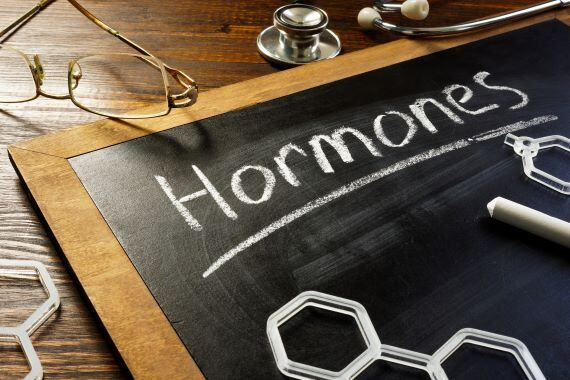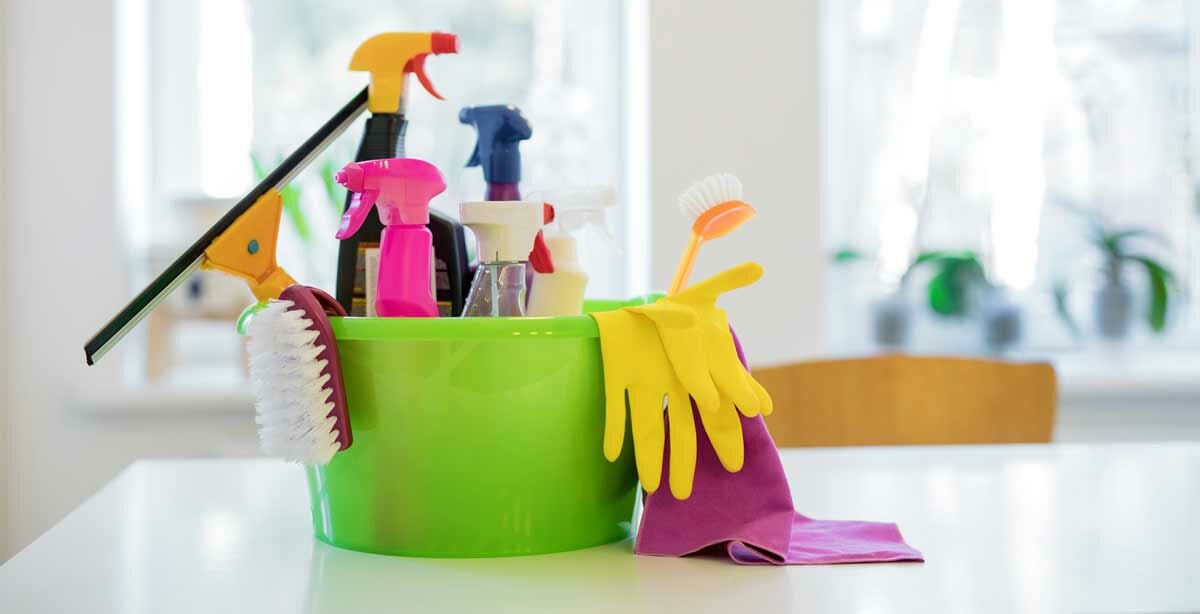
Hormones are chemical messengers that play a crucial role in regulating various physiological processes in the body, including growth, metabolism, reproduction, and mood. An imbalance in hormones can lead to various health issues, ranging from fatigue and weight gain to more serious conditions like diabetes and thyroid disorders. Recently, antioxidants have garnered attention for their potential to support hormonal balance and overall health. This blog explores how hormones function and the ways in which antioxidants can contribute to hormonal health.
The Role of Hormones
Hormones are produced by endocrine glands, including the pituitary, thyroid, adrenal glands, and pancreas. They travel through the bloodstream to tissues and organs, where they exert their effects. Some key hormones and their functions include:
1. **Insulin**: Regulates blood sugar levels.
2. **Thyroid hormones (T3 and T4)**: Control metabolism and energy production.
3. **Estrogen and Progesterone**: Regulate the menstrual cycle and reproductive health.
4. **Cortisol**: Manages stress response and immune function.
5. **Testosterone**: Influences muscle mass, bone density, and sex drive.
The Role of Hormones
Hormones are produced by endocrine glands, including the pituitary, thyroid, adrenal glands, and pancreas. They travel through the bloodstream to tissues and organs, where they exert their effects. Some key hormones and their functions include:
1. **Insulin**: Regulates blood sugar levels.
2. **Thyroid hormones (T3 and T4)**: Control metabolism and energy production.
3. **Estrogen and Progesterone**: Regulate the menstrual cycle and reproductive health.
4. **Cortisol**: Manages stress response and immune function.
5. **Testosterone**: Influences muscle mass, bone density, and sex drive.
Hormonal Imbalance and Its Effects
When hormone levels are too high or too low, it can disrupt normal bodily functions. Common symptoms of hormonal imbalance include:
- Fatigue
- Weight gain or loss
- Mood swings
- Sleep disturbances
- Reduced libido
- Irregular menstrual cycles
Factors contributing to hormonal imbalances include stress, poor diet, lack of exercise, and exposure to toxins.
The Power of Antioxidants
Antioxidants are compounds that protect the body from oxidative stress by neutralizing free radicals—unstable molecules that can damage cells and contribute to aging and diseases. Common antioxidants include vitamins C and E, selenium, and flavonoids found in various fruits, vegetables, nuts, and seeds.
How Antioxidants Support Hormonal Health
1. **Reducing Oxidative Stress**: By neutralizing free radicals, antioxidants help protect endocrine glands from damage, ensuring they function optimally and produce hormones in the right amounts.
2. **Supporting Thyroid Health**: Selenium, an antioxidant found in nuts, seeds, and seafood, is crucial for the production and regulation of thyroid hormones. It helps convert thyroxine (T4) into the more active triiodothyronine (T3).
3. **Balancing Cortisol Levels**: Chronic stress can lead to elevated cortisol levels, which negatively impact overall health. Antioxidants like vitamin C support adrenal gland function and help regulate cortisol production, promoting a balanced stress response.
4. **Enhancing Insulin Sensitivity**: Antioxidants such as alpha-lipoic acid (ALA) and vitamin E improve insulin sensitivity, which helps regulate blood sugar levels and prevents conditions like diabetes.
5. **Protecting Reproductive Health**: Antioxidants like vitamin E and coenzyme Q10 (CoQ10) support reproductive health by reducing oxidative stress in reproductive tissues. This is particularly beneficial for maintaining healthy levels of estrogen and progesterone.
Incorporating Antioxidants into Your Diet
To support hormonal health, it’s important to include a variety of antioxidant-rich foods in your diet. Some excellent sources of antioxidants include:
- **Berries**: Blueberries, strawberries, and raspberries are rich in vitamins C and E.
- **Nuts and Seeds**: Almonds, walnuts, and sunflower seeds provide selenium and vitamin E.
- **Leafy Greens**: Spinach, kale, and Swiss chard are packed with vitamins A and C.
- **Fruits**: Oranges, kiwi, and papaya offer a good dose of vitamin C.
- **Vegetables**: Bell peppers, broccoli, and carrots are excellent sources of various antioxidants.
- **Green Tea**: Rich in polyphenols, green tea is a powerful antioxidant beverage.
Conclusion
Hormonal balance is essential for maintaining overall health and well-being. By understanding the role of hormones and incorporating antioxidant-rich foods into your diet, you can support your endocrine system and promote optimal hormonal health. Regular exercise, adequate sleep, and stress management are also vital components of a holistic approach to maintaining hormonal balance.
---
By focusing on these lifestyle changes and dietary adjustments, you can harness the power of antioxidants to support your hormonal health and overall well-being.
When hormone levels are too high or too low, it can disrupt normal bodily functions. Common symptoms of hormonal imbalance include:
- Fatigue
- Weight gain or loss
- Mood swings
- Sleep disturbances
- Reduced libido
- Irregular menstrual cycles
Factors contributing to hormonal imbalances include stress, poor diet, lack of exercise, and exposure to toxins.
The Power of Antioxidants
Antioxidants are compounds that protect the body from oxidative stress by neutralizing free radicals—unstable molecules that can damage cells and contribute to aging and diseases. Common antioxidants include vitamins C and E, selenium, and flavonoids found in various fruits, vegetables, nuts, and seeds.
How Antioxidants Support Hormonal Health
1. **Reducing Oxidative Stress**: By neutralizing free radicals, antioxidants help protect endocrine glands from damage, ensuring they function optimally and produce hormones in the right amounts.
2. **Supporting Thyroid Health**: Selenium, an antioxidant found in nuts, seeds, and seafood, is crucial for the production and regulation of thyroid hormones. It helps convert thyroxine (T4) into the more active triiodothyronine (T3).
3. **Balancing Cortisol Levels**: Chronic stress can lead to elevated cortisol levels, which negatively impact overall health. Antioxidants like vitamin C support adrenal gland function and help regulate cortisol production, promoting a balanced stress response.
4. **Enhancing Insulin Sensitivity**: Antioxidants such as alpha-lipoic acid (ALA) and vitamin E improve insulin sensitivity, which helps regulate blood sugar levels and prevents conditions like diabetes.
5. **Protecting Reproductive Health**: Antioxidants like vitamin E and coenzyme Q10 (CoQ10) support reproductive health by reducing oxidative stress in reproductive tissues. This is particularly beneficial for maintaining healthy levels of estrogen and progesterone.
Incorporating Antioxidants into Your Diet
To support hormonal health, it’s important to include a variety of antioxidant-rich foods in your diet. Some excellent sources of antioxidants include:
- **Berries**: Blueberries, strawberries, and raspberries are rich in vitamins C and E.
- **Nuts and Seeds**: Almonds, walnuts, and sunflower seeds provide selenium and vitamin E.
- **Leafy Greens**: Spinach, kale, and Swiss chard are packed with vitamins A and C.
- **Fruits**: Oranges, kiwi, and papaya offer a good dose of vitamin C.
- **Vegetables**: Bell peppers, broccoli, and carrots are excellent sources of various antioxidants.
- **Green Tea**: Rich in polyphenols, green tea is a powerful antioxidant beverage.
Conclusion
Hormonal balance is essential for maintaining overall health and well-being. By understanding the role of hormones and incorporating antioxidant-rich foods into your diet, you can support your endocrine system and promote optimal hormonal health. Regular exercise, adequate sleep, and stress management are also vital components of a holistic approach to maintaining hormonal balance.
---
By focusing on these lifestyle changes and dietary adjustments, you can harness the power of antioxidants to support your hormonal health and overall well-being.

If you're over 40 and experiencing hormonal imbalance, then it's important that you understand which foods can help, and which can harm. Eating the right things is essential for restoring balance to your hormones and improving your overall health. However, some foods can aggravate your condition and make it worse. In this blog post, we'll discuss a few of the most common culprits you should avoid in order to keep your hormones in check.
Processed Foods
When it comes to eating for hormone balance, processed food should be avoided at all costs. Processed snacks like chips and candy bars are loaded with unhealthy ingredients that throw off the delicate balance of hormones in your body. The same goes for processed meats like hot dogs or lunch meats. Not only do these items contain high levels of salt and sugar, but they also contain preservatives that have been linked to abnormal hormone levels. The key takeaway here is to stick with fresh, unprocessed foods as much as possible.
Dairy Products
Milk products such as cheese and yogurt may be tasty, but they can also be a source of major problems when it comes to hormonal balance. Dairy products contain naturally occurring hormones called estrogens, which can disrupt the delicate balance of hormones in your body. Furthermore, many dairy products are made from cows treated with synthetic hormones like rBGH (recombinant bovine growth hormone), which can further throw off your natural hormone levels.
Refined Sugar
Refined sugar is one of the worst offenders when it comes to disrupting hormonal balance in women over 40. Refined sugar causes a spike in insulin levels in the body, leading to an increase in fat storage around the midsection—which is often associated with hormonal imbalance issues such as PCOS (polycystic ovarian syndrome). To add insult to injury, refined sugar also promotes inflammation and oxidative stress throughout the body—both of which are linked to higher levels of estrogen production.
Conclusion:
Hormonal imbalances can cause a wide range of unpleasant symptoms including weight gain, low energy levels, mood swings, headaches, fatigue and more. Fortunately, there are ways you can help restore balance back into your hormones by avoiding certain foods like processed snacks, dairy products and refined sugars . By making simple changes to your diet—such as limiting processed foods and focusing on whole foods instead—you'll be taking an important step towards restoring harmony back into your hormones once again!

Vitamins for Hormone Balance
As we get older, our hormones begin to change. This can cause a variety of different issues, from mood swings to insomnia, and it can be hard to know where to turn for help. Fortunately, there are certain vitamins that can help support hormone balance. Let’s take a look at some of the best vitamins for managing hormone levels as you age.
Vitamin D3 and Magnesium
Vitamin D3 is one of the most important vitamins for supporting healthy hormone levels. Vitamin D3 helps to regulate calcium absorption in the body, which helps keep your bones strong and healthy. It also helps support a healthy immune system and helps with proper cell growth and development. Magnesium is another vitamin that is essential for proper hormone balance because it can help reduce inflammation in the body. It also helps to relax the muscles so you don’t feel tense or anxious throughout the day.
B Vitamins
B vitamins are an essential part of any wellness routine because they help support normal energy levels and mental clarity throughout the day. B vitamins are especially important for women over 40 because they can help manage stress levels, which can have a big impact on your hormones. B vitamins also help promote healthy skin and hair, which is especially helpful if you’re dealing with hormonal changes that are affecting your appearance.
Zinc and Iron
Zinc and iron are two more essential nutrients that are important for maintaining optimal hormone levels as you age. Zinc helps regulate testosterone levels in both men and women, while iron helps increase hemoglobin production which assists in transporting oxygen through your body more efficiently. Both zinc and iron can also help improve mood by helping your body better cope with stressors throughout the day.
With all of these options available, it's easy to see why taking care of your hormones is so important as you age! Taking the right combination of vitamins every day can make a big difference in how you feel each day. Just make sure you do your research to determine which supplements are best! Whole food supplements, rather than synthetic, and those that have a high absorption rate. A daily regimen of quality supplements tailored specifically for your needs, you will be well on your way towards achieving balanced hormones!

How to Balance Your Hormonal Rollercoaster Ride
Ah, hormones. We can’t live with them, we can’t live without them. If your hormones are out of whack, you may feel like you’re riding a never-ending hormonal rollercoaster. If this is something you’re struggling with, don’t worry — there are ways to get back in control and find balance! Let’s dive into how you can treat hormonal imbalance and get back on track.
Dietary Changes
What you eat can have a huge impact on your hormones. Eating certain foods can help reduce inflammation and hormone imbalances while other types of food will only make it worse. Certain foods contain essential nutrients that play a major role in maintaining healthy hormone levels such as Vitamin B6, magnesium, zinc, omega-3 fatty acids, and more. Try incorporating more of these foods into your diet: leafy greens, nuts and seeds, salmon and other fatty fish, fruits like apples and blueberries, avocados, whole grains like quinoa or oats, legumes such as lentils or beans, eggs (preferably organic), yogurt or kefir (preferably unsweetened), dark chocolate (in moderation!), fresh herbs like parsley or cilantro (great for detoxifying). These foods will help keep your hormones balanced naturally!
Stress Management
Stress is one of the main culprits when it comes to unbalanced hormones. When we experience too much stress over long periods of time our bodies don't know what to do with it all so it begins to store the excess energy in our fat cells which then leads to an increase in cortisol levels – the main stress hormone that affects our body's ability to regulate energy levels. To reduce stress levels try exercising regularly (at least 20 minutes a day), yoga or meditation classes if available near you - they're great for calming the mind - getting enough sleep every night (aiming for 7-8 hours), engaging in activities that bring joy and allowing yourself time off from work/responsibilities when needed. All of these things will help keep your stress levels at bay so your hormone levels stay balanced.
Supplements & Herbs
Certain supplements may be beneficial for treating hormonal imbalances such as probiotics which help maintain good bacteria in the gut; Vitamin D which helps regulate calcium absorption; Omega-3 Fatty Acids which provide essential fats for proper brain function; Magnesium which helps relax muscles; Zinc which plays a role in testosterone production; DIM or Diindolylmethane which helps metabolize estrogen; Ashwagandha which helps reduce anxiety and cortisol levels; Maca Root Powder which helps boost libido and energy; Rhodiola Rosea which helps improve mood; Chasteberry Extract which helps regulate menstrual cycles; Licorice Root Extract which can reduce PMS symptoms; Ginkgo Biloba Extract is also good for improving mental clarity among other benefits. Additionally there are some herbal remedies that may be useful such as saw palmetto extract for reducing symptoms related to PCOS (Polycystic Ovarian Syndrome) as well as dandelion root tea for aiding digestion & liver health since liver health plays an important role in hormone regulation too!
Hormonal imbalance doesn't have to be something that keeps you up at night—you can take steps now towards finding balance once again! Start by making dietary changes such as incorporating more nutrient-dense foods into your diet like leafy greens and avocado as well as reducing processed foods from your meals. Don't forget about managing stress levels by taking time off from work/responsibilities when needed or engaging in activities that bring joy! Finally adding natural supplements & herbs into your routine could be helpful too—they could provide just the right amount of support needed for balancing out those hormones again! So if you're looking for ways on how to treat hormonal imbalance look no further than this article —you've got all the information here now let's get started bringing balance back into our life!







